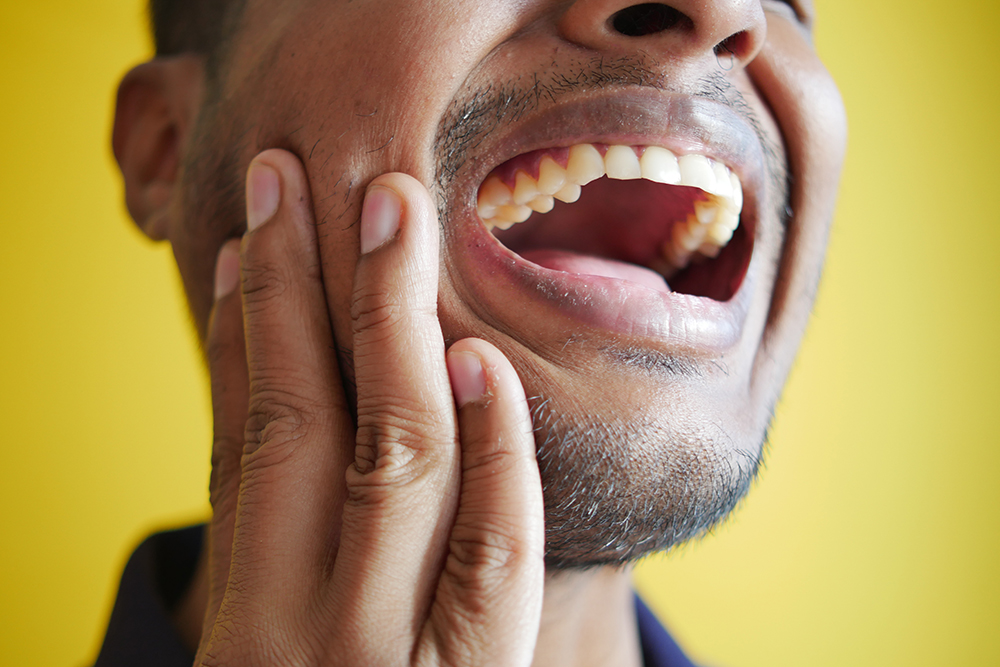Contents
The temporomandibular joint (TMJ) is the joint that connects your jaw to your skull. Located on either side of your head, this joint plays a crucial role in jaw movements. When you chew, talk, sing and yawn, you are using your TMJ. Because the TMJ is essential to so many functions, keeping it healthy is important. Dysfunction in the TMJ can lead to a range of uncomfortable symptoms that may worsen without treatment.
TMJ dysfunction is a condition that can have many causes. Typically, it is caused by muscle strain in the area around the joint. Other causes can include teeth grinding and jaw injuries. If you are experiencing the symptoms of TMJ dysfunction, receiving specialist treatment should be a top priority. A physical therapy specialist can intervene early and help prevent your TMJ symptoms from getting worse. By learning to identify early warning signs, you can be proactive with your recovery journey.
Signs you should see a TMJ specialist
- Persistent discomfort — Feeling persistent pain around your jaw? Chronic jaw pain is a key sign of TMJ dysfunction. People with TMJ issues often experience aching pains and tenderness. These uncomfortable sensations might be more intense when using your jaw. You may feel deeper aches while talking, for example. If your jaw pain persists, it is important to take your discomfort seriously. Seeking treatment from a physical therapy specialist who knows how to address TMJ can be an essential first step toward experiencing relief.
- Abnormal sounds — If your jaw makes odd sounds, it could be indicative of a serious underlying issue. Abnormal sounds may occur due to issues with the way your jaw moves. The sounds most commonly associated with TMJ dysfunction are clicking and popping noises. You might notice these sounds when opening and closing your mouth. A grating sound is also relatively common. Noticing these noises typically means you should see a TMJ specialist, especially if you are experiencing other symptoms at the same time. A physical therapist can help reduce sounds in the jaw by addressing the root causes of this symptom.
- Tinnitus — Tinnitus refers to persistent ringing in the ears. If you are experiencing tinnitus, you may be worried that the symptom is chronic. Tinnitus can sometimes be very difficult to treat. While it often goes away with time and proper treatment, tinnitus can even be permanent (typically when associated with hearing loss). Fortunately, tinnitus caused by TMJ dysfunction can typically be addressed through physical therapy. TMJ dysfunction can cause muscle tension and affect soft tissue throughout the side of your head. The radiating effects of your TMJ issues can impact your inner ear, leading to tinnitus. By alleviating tension around the ear and addressing dysfunction in the TMJ, your physical therapist can help treat your tinnitus.
- Frequent headaches — Do you experience frequent headaches? The cause could be TMJ dysfunction. Recurring headaches may be related to the tension caused by TMJ. As your symptoms worsen, you may experience more intense and long-lasting headaches. For many people, TMJ dysfunction affects one side of the head more than the other. In these cases, pulsating migraines on that side of the head are somewhat common. Your physical therapist can help you find relief from your headaches by addressing your TMJ disorder.
- Jaw stiffness — TMJ dysfunction can have a major impact on your jaw’s functionality. You may experience difficulty when trying to open and close your mouth. Resistance when moving your jaw can result from stiffness in the jaw joint. The specific limits of your jaw’s movement can depend on the severity of your condition. In addition to stiffness, some people experience locking in the jaw. Jaw locking occurs when your jaw feels stuck in a particular condition. If you are experiencing stiffness or locking, seeking treatment is essential. Your physical therapist can help by providing techniques such as jaw exercises tailored to your needs.
- Teeth grinding — Teeth grinding, also known as bruxism, refers to involuntary clenching or grinding of your teeth. This typically occurs when something causes your jaw to press your lower teeth against the upper row. Over time, teeth grinding can lead to more serious issues. Bruxism may wear down your teeth and even result in chipping. It can also contribute to TMJ symptoms like headaches and jaw pain. To help reduce your discomfort and keep your teeth safe, it is important to seek care from a specialist. A physical therapist can apply special methods including manual therapy to promote healing.
See a specialist for TMJ dysfunction at Lattimore Physical Therapy
Ready to seek treatment for your TMJ? At Lattimore Physical Therapy, our physical therapy specialists are ready to help you. With treatments including focused exercises and hands-on therapy, we can work with you to find a long-term solution to your jaw issues. Our personalized approach is designed to ensure that you receive quality care that aligns with your needs and goals.
Contact our team today for more information or to schedule an initial appointment.



